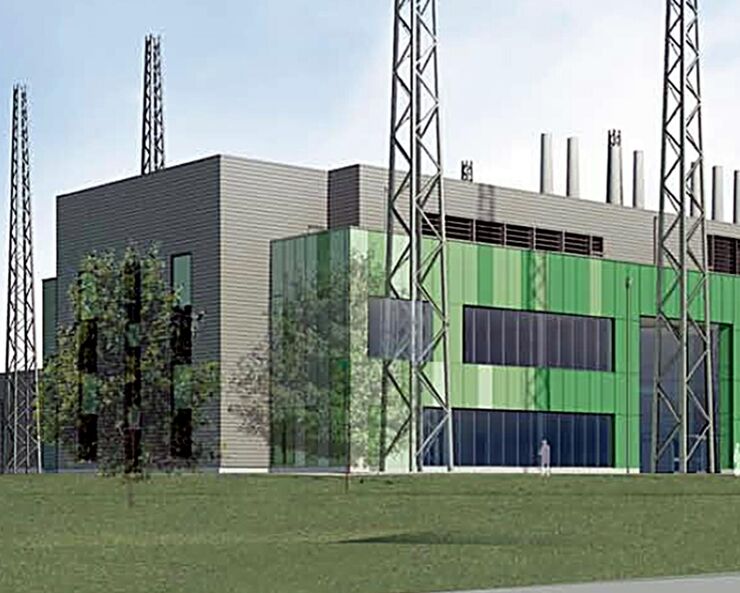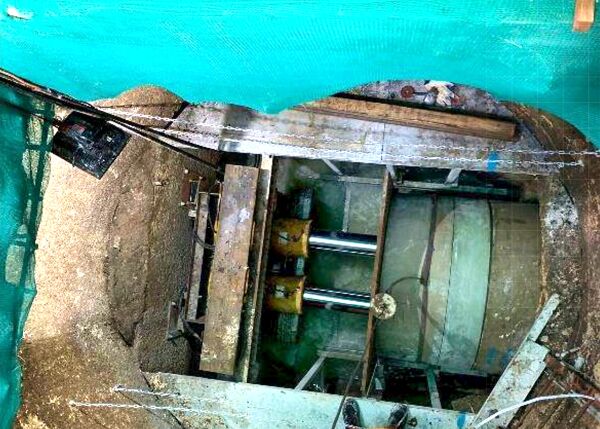
 |
NEC Client of the Year Highly Commended |
The UK government’s Defence Science and Technology Laboratory (Dstl) has successfully procured a new explosive materials research centre using NEC. In recognition of its exemplary approach to procurement, Dstl was shortlisted for the 2019 NEC Client of the Year Award.
Completed on time and within 8% of budget in June 2019, the new £35 million Energetics Analysis Centre at Porton Down near Salisbury in Wiltshire provides the UK with a world-class science and engineering facility to defend the nation from explosive materials. The 7,283m2 T-shaped building is arranged over three levels, with two floors of state-of-the-art chemical laboratories, workshops, offices, meeting rooms, welfare facilities and storage, and a roof-level plant floor. The steel-framed, flat-roof structure is finished with coloured metal cladding and curtain-wall glazing.
Dstl let the project to contractor Willmott Dixon in March 2017 under an NEC3 Engineering and Construction Contract (ECC) Option A (priced contract with activity schedule). It was part of the NEC-procured £125 million Helios programme to relocate Dstl facilities from Sevenoaks in Kent, to Porton Down, Wiltshire. The NEC project manager for all three projects was Pick Everard.
Inclusive Approach
Pick Everard programme director, Lance Hodges, said, “The complex nature of the Energetics Analysis Centre project required an inclusive approach from the outset. This included early contractor involvement, during which value management, building information modelling (BIM) and contract management software helped to improve design efficiency. NEC’s open-book approach also provided full transparency over contract pricing and risk allocation.”
In line with the NEC obligation to work in a “spirit of mutual trust and co-operation”, the working ethos was one of a single team. “Team members respected and trusted the contribution of others and worked fairly, collaboratively and cooperatively to drive the project forward to deliver the client’s requirements. A facilitated workshop at the outset enabled us to explore and discuss how best to bring to life a collaborative and cooperative working environment, and to start establishing the necessary respect and trust in each other's contributions.”
Hodges added, “The single-team approach extended to an inclusive governance system. The team worked collaboratively to manage, oversee and deliver the contract and, in doing so, adopted a fair and respectful attitude to resolving issues and dealing with the materialisation of risk. Open and inclusive communications and information sharing were at the heart of the project's day-to-day business.”
Change Management
An example of the benefit of the single-team approach was experienced when issues were identified with the many specialist gas supplies, and no material supplier could be found to meet the client’s specification. Following an NEC early warning and risk reduction meeting, the team developed an alternative approach of installing specialist filters prior to the point of use, thereby saving extensive rework.
Complex and late changes in the client’s requirements during construction also presented the team with significant challenges. Using NEC’s change-management mechanisms, the contractor was able to cooperatively and openly develop priced proposals and solutions that minimised the impact to overall time and cost. The role of the NEC supervisor proved beneficial to both the client and contractor in that the supply-chain delivery issues and design anomalies discovered during construction were resolved speedily to maintain the overall programme.
In total there were 132 early warnings, 324 project manager instructions and 166 agreed compensation events worth a total of £2.5 million. Hodges concluded, “The cooperative and collaborative approach engendered by NEC to deliver this vitally important UK strategic asset ensured it was delivered on time, within 8% of budget and in accordance with the client’s requirements. These successes were a direct result of avoiding adversarial conflicts, sharing information openly, and striving collaboratively to achieve a common goal. The client considers this to have been an exemplar procurement.”
Benefits of Using NEC
- NEC flexibility enabled early contractor involvement, during which value management and innovative use of BIM helped to improve design efficiency.
- NEC open-book approach provided full transparency over contract pricing and risk allocation.
- NEC requirement to work in a “spirit of mutual trust and co-operation” ensured the project team worked collaboratively to drive the scheme forward and deliver the client’s requirements.
- NEC early warning and risk management processes helped ensure that client changes and other issues were resolved speedily with minimal impact on programme and budget.



